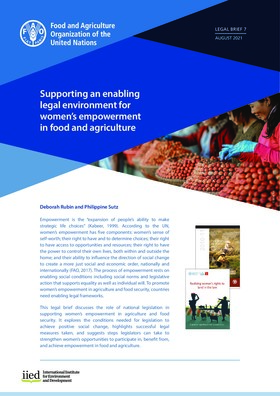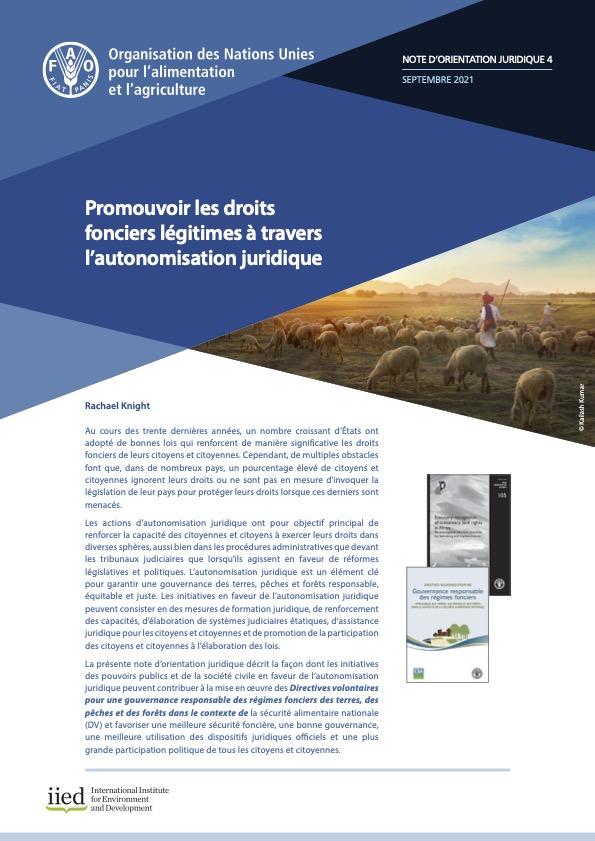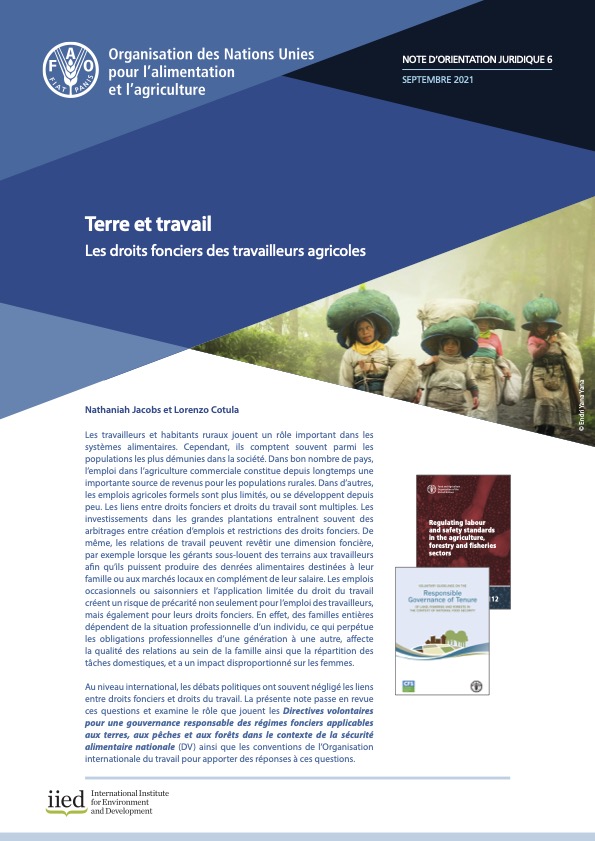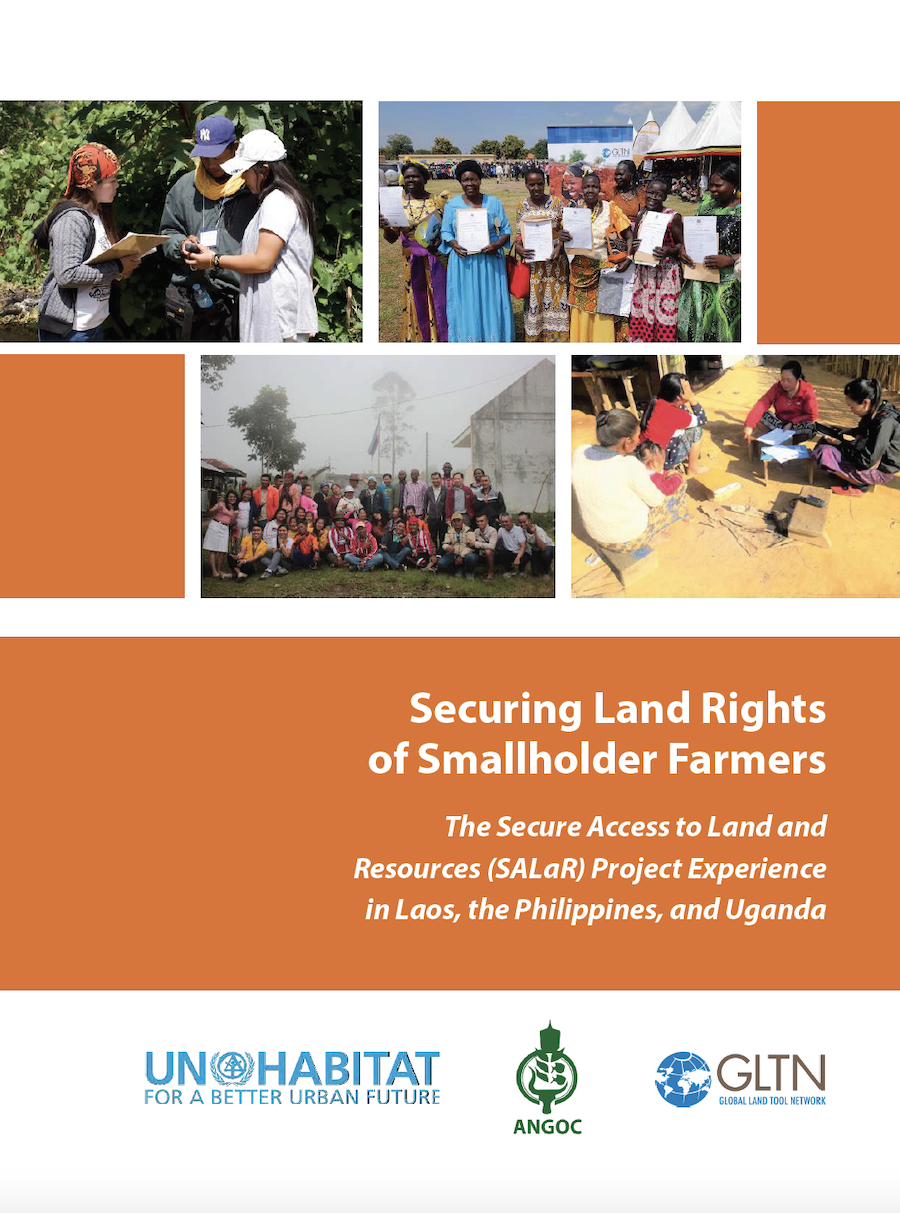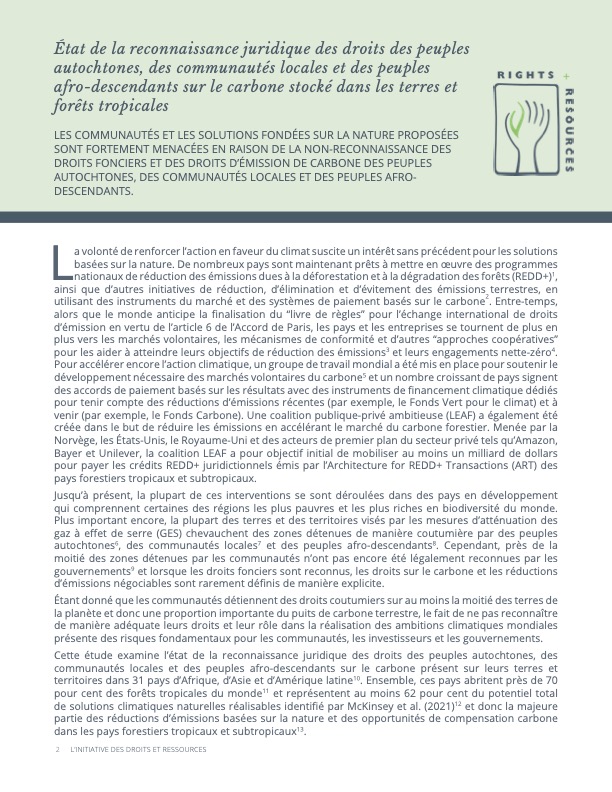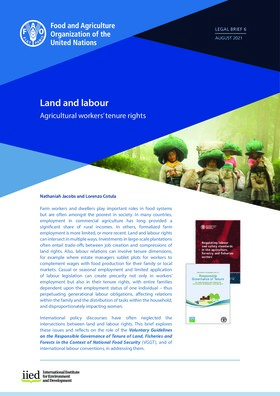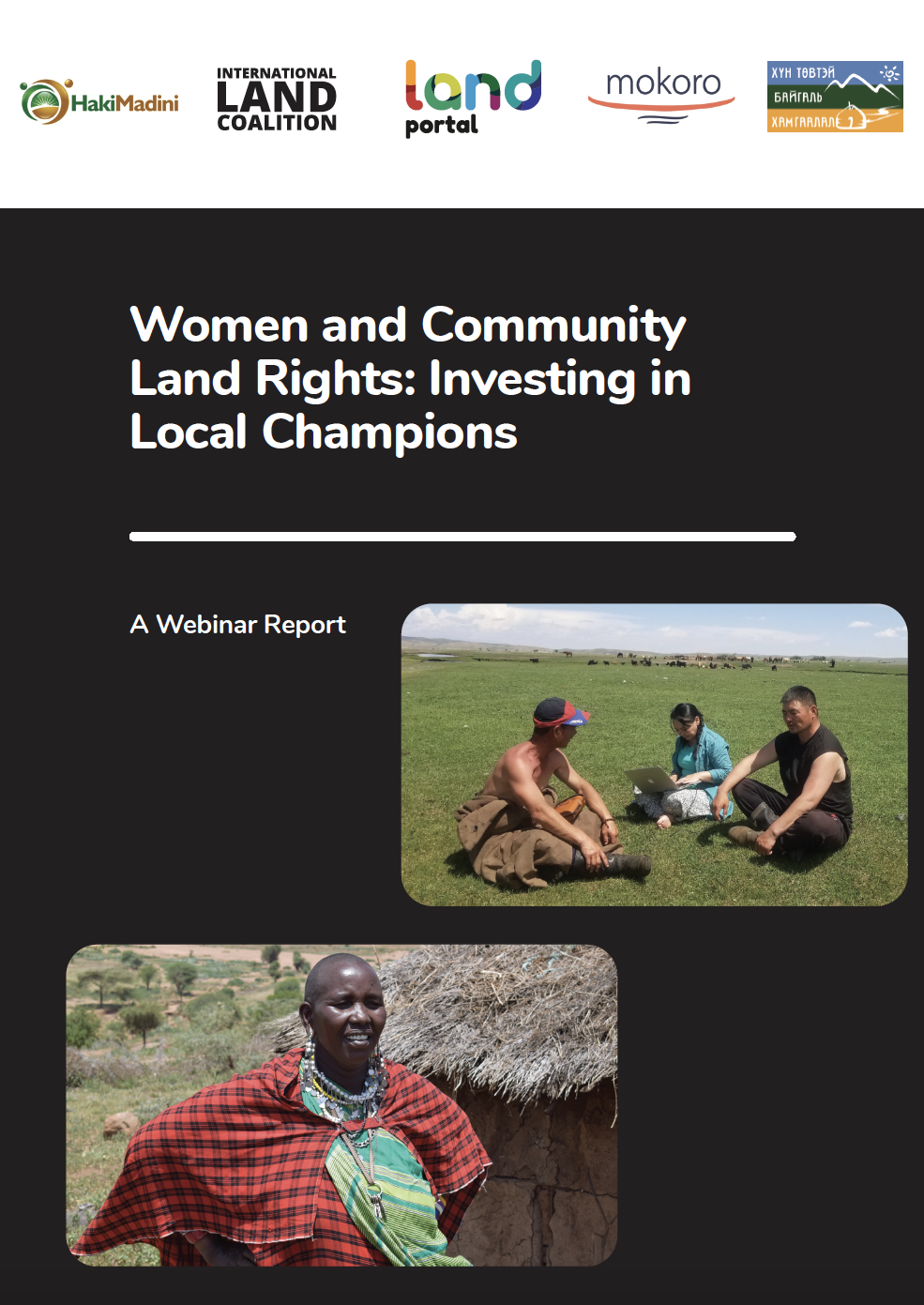Women's Right to Land Between Collective and Individual Dimensions. Some Insights From Sub-Saharan Africa
Women represent a large part of the 2.5 billion people who depend on lands managed through customary, community-based tenure systems and are especially reliant on commons for their lives and livelihoods. They have very often limited and unsecured access to land and natural resources and tend to be excluded from decisions concerning them.


